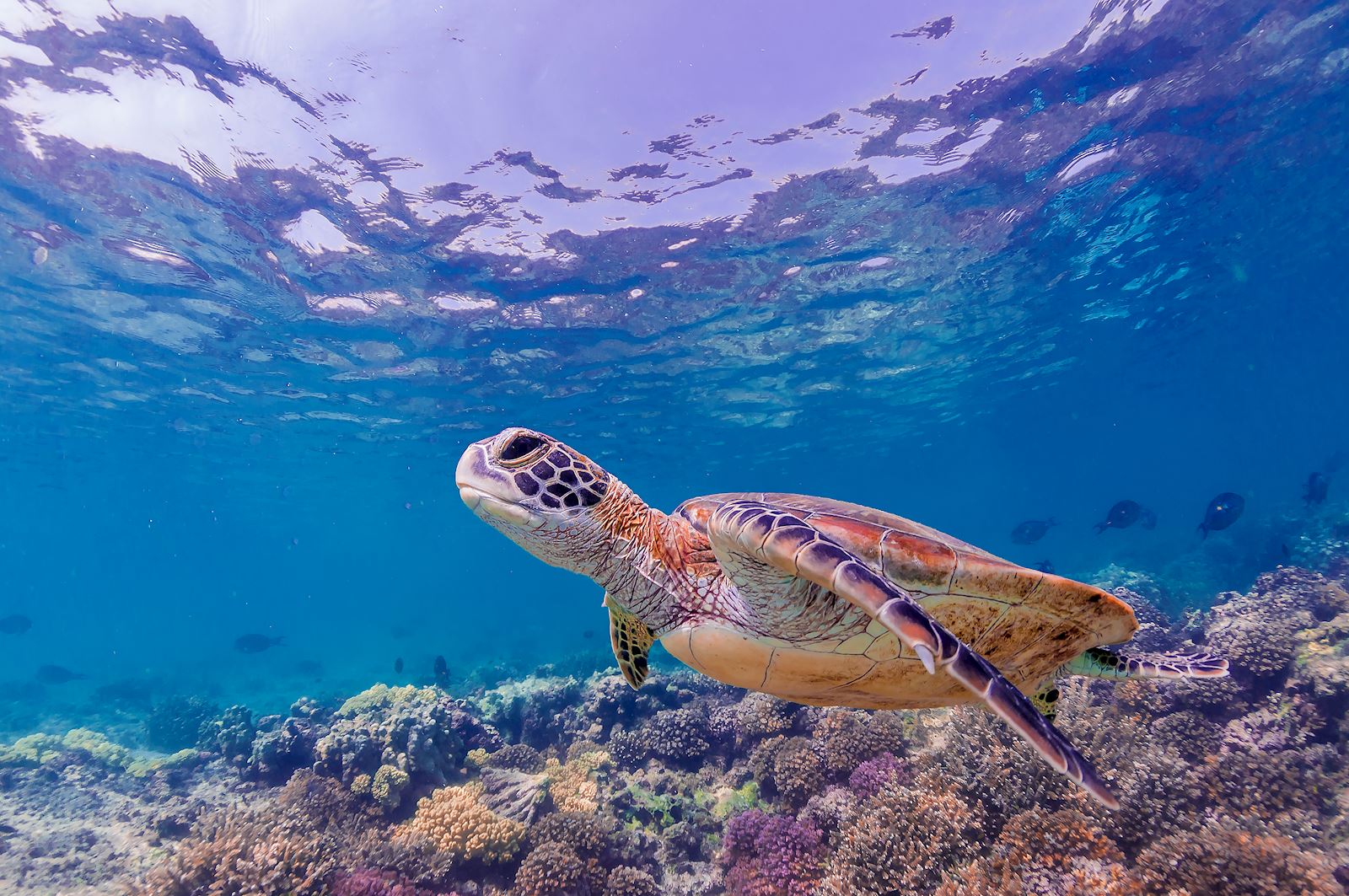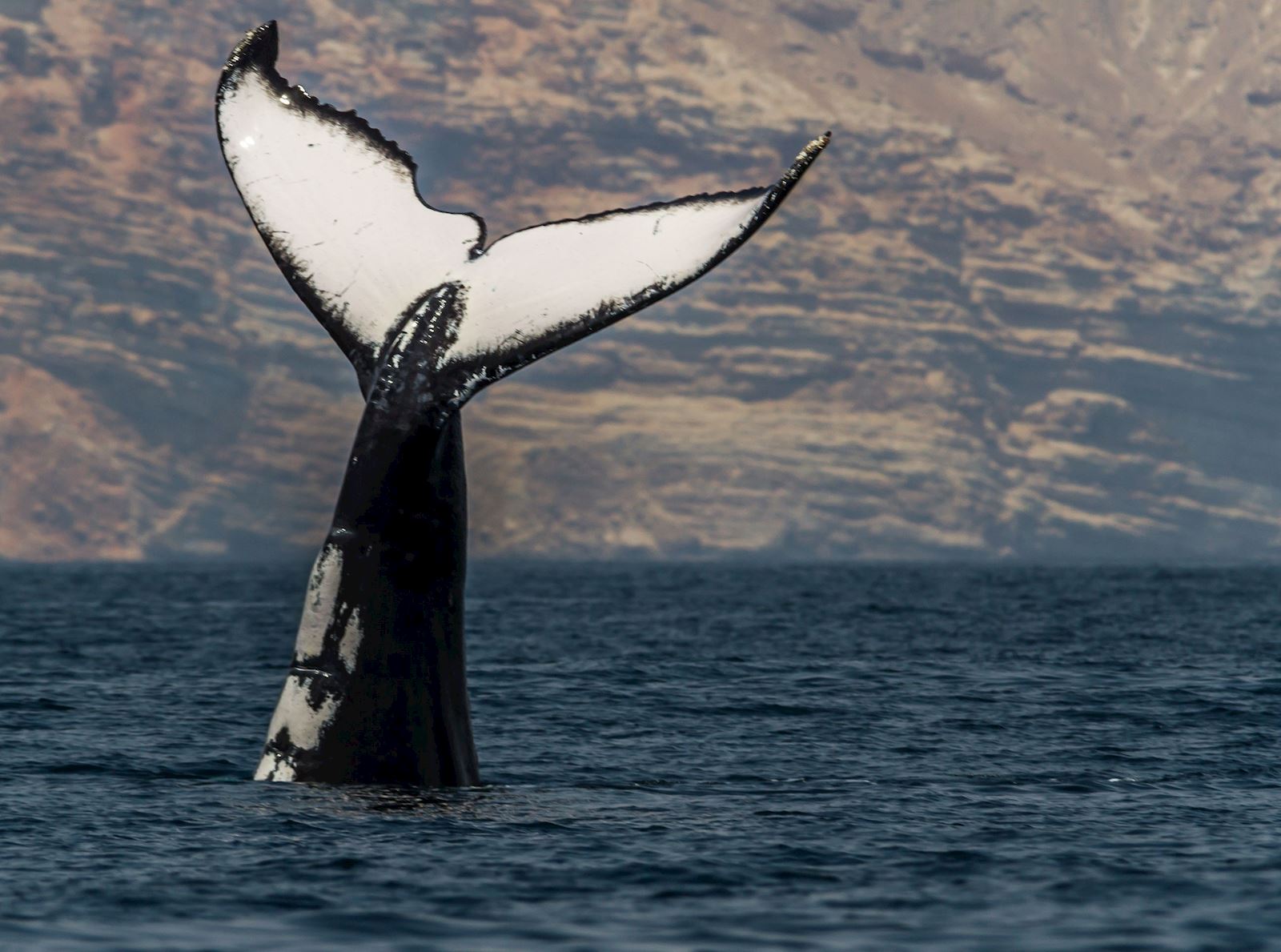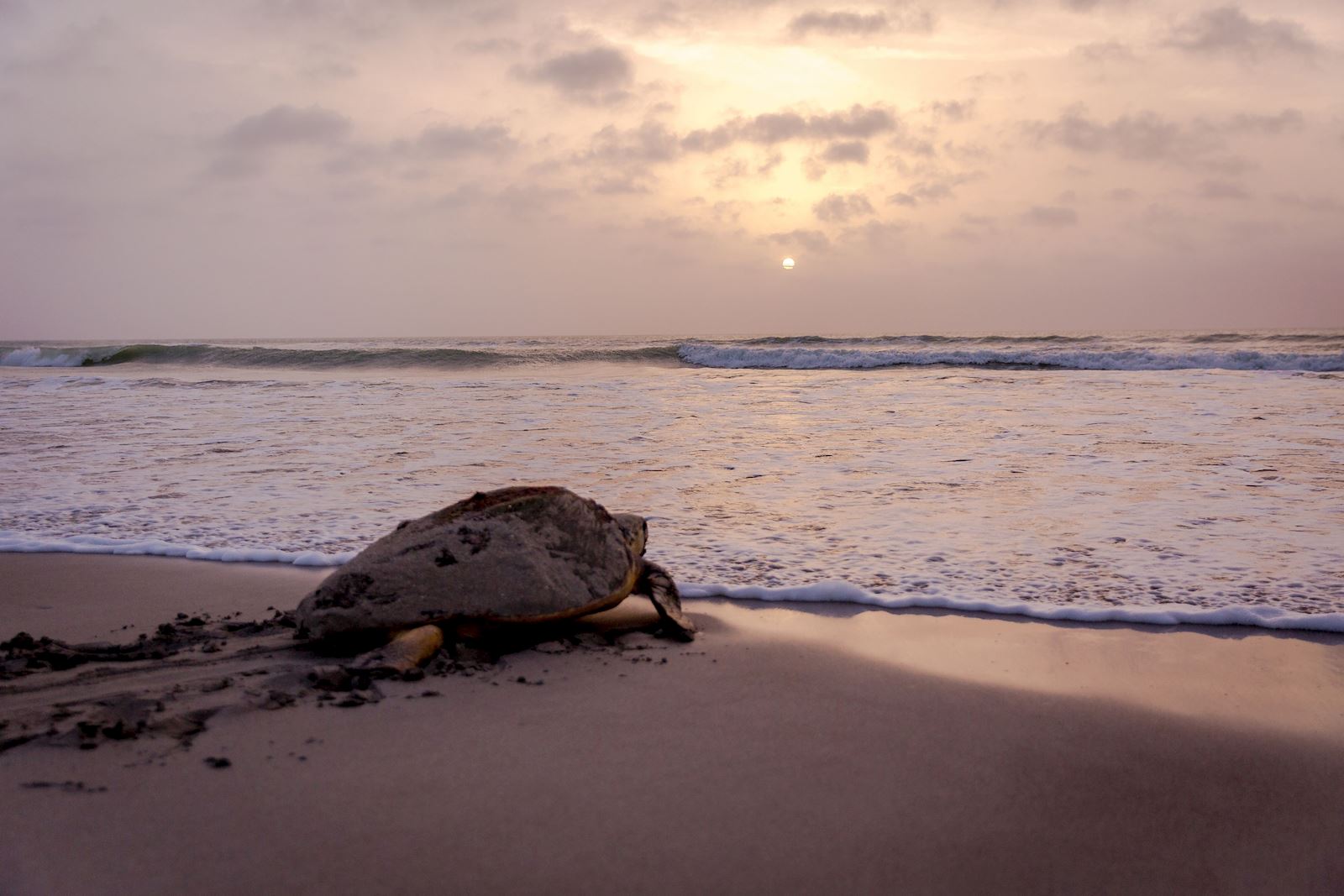Occupying an isolated corner of the Indian Ocean, the seas of the Sultanate of Oman are home to some of the world's most varied and biologically productive waters. Oman’s abundant wildlife is vital to the livelihood of the communities that live along the coastline, as well as making it a must-visit destination. Unfortunately, like much of the world, Oman’s marine environment is threatened by a number of factors, the biggest of which include entanglement, suffocation and poisonous ingestion from lost or abandoned fishing gear, plastic pollution, ship strikes, habitat loss and climate change. This is something the Environment Society of Oman (ESO), through its various projects and initiatives, seeks to address.
As the country’s only non-profit organisation dedicated to the environment, ESO has spent the last 16 years working to protect Oman’s environment through research, education, advocacy, and conservation. Its prestigious work has been fundamental to a greater understanding of the factors that affect Oman’s marine environment and a collective drive to save it.
 Paul Flandinette, Green Turtle, Oman
Paul Flandinette, Green Turtle, Oman
Launched in 2008, the Turtle Research and Conservation project, a collaboration with the US Fish and Wildlife Service and Oman’s Environment Authority, has played a lead role in research on the turtles of Masirah Island, accelerating global knowledge and understanding of turtle biology, ecology and conservation needs. Its most significant, and damning, discovery was a 79% decline in the nesting population on the island, which has historically been one of the largest nesting grounds of Loggerhead turtles in the world. One of ESO’s responses has been to coordinate annual net removal campaigns ahead of turtle nesting seasons in an attempt to mitigate the threat of entanglement and injestion during nesting and hatching. In 2020 alone, its team properly disposed of almost 200 tons of fishing gear, an achievement that was made possible by the Summer Sea Turtle Sustainability Grant from the Turtle Island Restoration Network and SEE Turtles, a grant awarded to ESO thanks to an international public vote.
Another of ESO’s major ocean-based initiatives is the Renaissance Whale and Dolphin Project, which it started in 2011 with the support of the Environment Authority and the Ministry of Agriculture, Fisheries and Water Resources. The project is focused on understanding the distribution and ecology of Oman’s cetaceans, particularly the Arabian Sea Humpback Whale, which, with less than 100 individuals, is one of the smallest and potentially most vulnerable humpback whale populations in the world. By cooperating with and assisting local and international bodies, ESO have acquired significant information, helping to better define distribution, abundance and population identities in Oman and to identify, assess and help mitigate threats through conservation management recommendations and actions. The results of this scientific research will be celebrated later this year in the publication of the Marine Mammal Atlas of Oman, a full-colour photographic book providing a thorough geographical representation of the Arabian whales and dolphins that call the Sea of Oman their home. Making an important contribution to our understanding of Oman’s unique marine and coastal wildlife, the Atlas will offer a rare insight into Oman’s 20 species of cetaceans, including a description of the taxonomy, distribution, habitat preferences, feeding and breeding status, seasonality, sightings history, population status and conservation status for each species, as well as the natural and human activities that are threatening them, and what we can do to help protect them.
 Dr Hamed al Gheilani, Arabian Sea Humpback Whale, Oman
Dr Hamed al Gheilani, Arabian Sea Humpback Whale, Oman
This article highlights only the marine based work of ESO but of course there are many other programs underway. Despite the challenges of COVID-19, which had a significant impact on the organisations ability to raise funding in 2020, ESO continued to press on with its vital work. During the year, as well as continuing with its established projects, it produced several educational materials. An animation to raise awareness of the hazards of lost and entangled fishing gear and a video showcasing the efforts ESO has made with the local fishing community regarding ghost fishing and littering, were among them. The team also accomplished 10 weeks of sea turtle work, reached out to 220 individuals through a campaign targeting farmers and fishermen, and distributed 4,600 reusable bags to communities in Muscat, Sur, Masirah, Al Wusta, Sadah and Thamreet, in a bid to reduce the prevalence of single-use plastic bags that inevitably find their way to the sea. Meanwhile, it continued to drive community engagement, ending the year with 357 individual members, 30 corporate members, as well as strengthening relationships with educators and fishermen across the country.
.jpg)
Now ESO is embarking on 2021 with renewed focus, yet its work is still in dire need of support. The organisation, and others like it, are arguably up for their most challenging year yet, as they seek to combat an ever-growing number of threats from pollution, coastal development, the increased presence of ships, overfishing, lack of data, and of course, the ever-creeping threat of climate change. Yet, as ESO’s success shows, there is plenty of reason for optimism. Sustainability awareness continues to increase, government regulations are maturing and communities everywhere are applying more urgency to their actions. The current health pandemic is serving as a stark reminder of how intricately connected environmental health is with human health and proving impetus for ESO’s efforts to continue. It is vitally important to Oman’s wildlife, and its communities, that they do. To find out more about ESO and how you can get involved to support their work, visit their website www.eso.org.om or contact them directly admin@eso.org.om.
 Dr Hamed al Gheilani, Loggerhead Turtle, Oman
Dr Hamed al Gheilani, Loggerhead Turtle, Oman